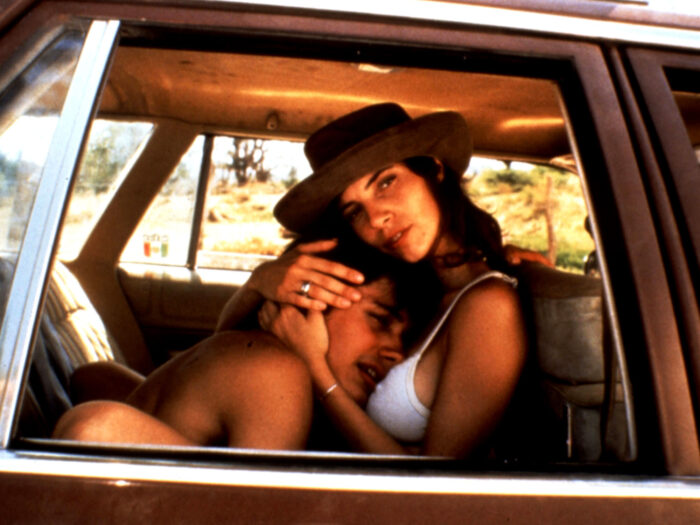Y tu mamá también, the film that secured Cuarón’s definitive breakthrough, opens with a fleeting hint of things to come: the poster for Hal Ashby’s Harold and Maude (1971), the story of an extraordinary relationship between an older woman and a younger boy. This time, two teenage boys hitting the road – the working-class Julio and Tenoch, from a more affluent family – are accompanied and “sentimentally educated” by a grown-up woman with marital problems, the melancholy Luisa.
At first, the stripling duo, bragging with their raunchy stories and suffering from an overproduction of hormones, seem to be mere chortling clones of Bill and Ted – or Beavis and Butt-Head – but the superficially salacious road movie darkens stealthily into the dimensions of a tragedy, with everyone hiding something – secrets unfold, unwind and unravel – and the roles played for the others soon fade into mere fragile charades.
The director’s artful, meticulously nuanced composition – a kind of orphaned child conceived and thrust into the world from a one-night stand between Jules and Jim (1962) and Easy Rider (1969) – looks deceptively simple on the surface, but speaks of the intricate roughness of the path travelled in a much more authentic language than any of the more formal and lightweight art-house posturings stiffened by their own gravity. Cuarón captures the thirst for life, the passion, and the mystery of existence in a primary state, naked and au naturel.
Lauri Timonen
